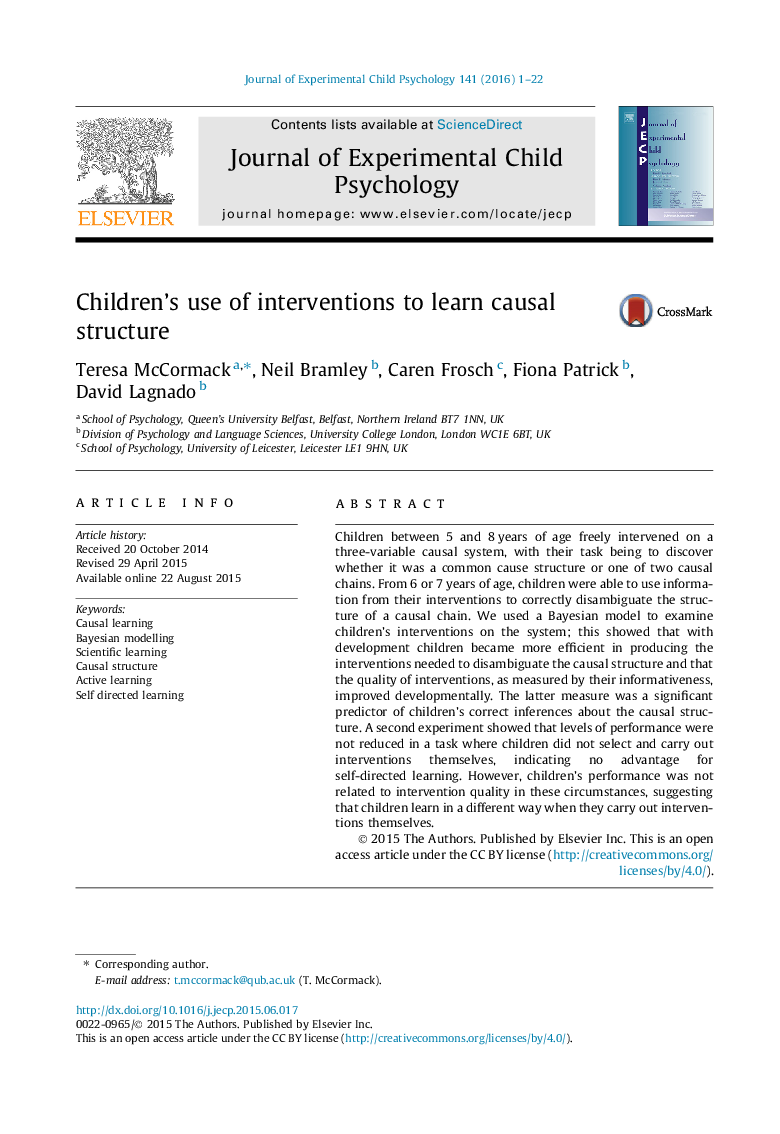| Article ID | Journal | Published Year | Pages | File Type |
|---|---|---|---|---|
| 7274854 | Journal of Experimental Child Psychology | 2016 | 22 Pages |
Abstract
Children between 5 and 8Â years of age freely intervened on a three-variable causal system, with their task being to discover whether it was a common cause structure or one of two causal chains. From 6 or 7Â years of age, children were able to use information from their interventions to correctly disambiguate the structure of a causal chain. We used a Bayesian model to examine children's interventions on the system; this showed that with development children became more efficient in producing the interventions needed to disambiguate the causal structure and that the quality of interventions, as measured by their informativeness, improved developmentally. The latter measure was a significant predictor of children's correct inferences about the causal structure. A second experiment showed that levels of performance were not reduced in a task where children did not select and carry out interventions themselves, indicating no advantage for self-directed learning. However, children's performance was not related to intervention quality in these circumstances, suggesting that children learn in a different way when they carry out interventions themselves.
Related Topics
Social Sciences and Humanities
Psychology
Developmental and Educational Psychology
Authors
Teresa McCormack, Neil Bramley, Caren Frosch, Fiona Patrick, David Lagnado,
